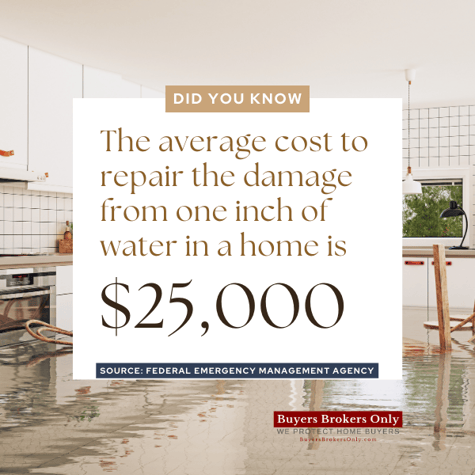In a recent episode of the NAEBA podcast "Listen Up Homebuyers," host Victoria Ray Henderson spoke with Jeff Jackson, Deputy Assistant Administrator for the Federal Insurance Directorate, who oversees flood insurance operations for FEMA's National Flood Insurance Program.
 The conversation offered valuable insights for first-time homebuyers on the critical topic of flood insurance.
The conversation offered valuable insights for first-time homebuyers on the critical topic of flood insurance.
Jeff Jackson emphasized the importance of understanding that standard homeowner's insurance policies typically do not cover flood damage. A separate flood insurance policy is often necessary to protect against water intrusion from external sources. Home buyers can choose between policies from the National Flood Insurance Program (NFIP) managed by FEMA or various private insurers.
Highlighting the widespread nature of flood risk, Jackson noted that 99 percent of U.S. counties have experienced flooding over the past 25 years. He stressed that flood risk is not always obvious. Factors such as urban development and the loss of green spaces influence risk. Even those property owners not immediately adjacent to water bodies should consider flood insurance.
For Boston area home buyers, understanding the flood risk associated with a potential property purchase should begin early in the house-hunting process. Jackson recommended checking FEMA's flood maps to determine if a home is in a high-risk zone, which would mandate flood insurance for properties with federally backed mortgages. He also advised buyers to look for signs of water damage and to inquire about the property's flood history during home inspections.
In areas like the "A.E." flood zone, where flood insurance is mandatory for homeowners with federally backed mortgages, Jackson advised obtaining a flood insurance quote early in the buying process to factor into the overall cost considerations. He also suggested that even those in lower-risk zones, like zone X near A.E. zones, should seriously consider flood insurance given the potential high flood damage repair costs. Jackson also pointed out that "it only takes about an inch of water that can quickly get you up to around a $25,000 cost repairing your home."
Addressing the cost of flood insurance, Jackson indicated that the average annual premium is slightly over $800 but can vary based on risk and location. He acknowledged the ongoing challenge of balancing insurability and affordability within the NFIP.
Lastly, Jackson encouraged homebuyers to educate themselves on flood risks and insurance options, recommending resources like FloodSmart.gov for comprehensive information and guidance.
For first-time homebuyers, this conversation underscores the vital role of flood insurance in protecting one's investment and ensuring peace of mind in the face of unpredictable natural events.






